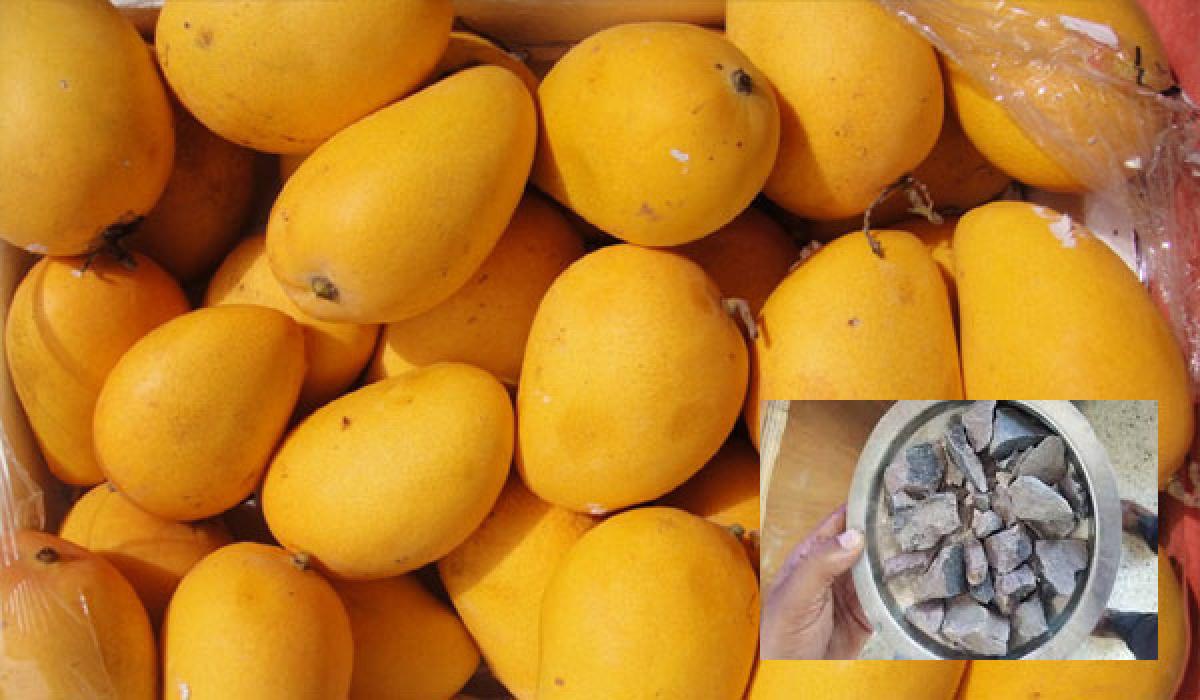Apr 27, 2017
Energy drink makers have heyday as FSSAI stays mum
Those that do not fit into any categories are categorised as proprietary foods.
Hyderabad: Sports nutrition products in India are not regulated, with the Food Safety Standard Authority of India (FSSAI) having created no specific guidelines. Sports nutrition products are categorised as regular food, nutritional supplements, or dietary supplements, depending on the formulation. Those that do not fit into any categories are categorised as proprietary foods.
Vilas Shirhatti who works with FSSAI’s expert group on proprietary foods says that banned substances are often found in sports nutrition products. “While these banned substances have short-term benefits, they pose health hazards in the long run. There is a list of banned ingredients which must not be used in formulations and it has to be strictly implemented,” he said.
The market is flooded with energy drinks that are in great demand. P. R. Reddy, a state food inspector, says the demand for energy drinks in city colleges and in the IT hub is very high. “We can’t take random action as there is no complaint by anyone us-ing these products,” he said.
Fatigue is a common symptom of today’s fast paced lifestyle and these products are in great demand to combat it. Dr S. B. Raju, senior general physician said, “Energy drinks and products made of whey protein and soy protein are being used randomly without identifying if the body really requires them. The issue of fatigue has to be dealt by modifying lifestyle and eating balanced food. But the craze for fad foods has got not only youngsters but also middle-aged women and senior citizens opting for it to boost their energy. These are available over the counter and there is no control over it.”
The first organ that gets stressed is the kidney when these products are used without consulting a nutritionist or doctor. Food experts say it’s essential to have labelling on these products directing consumers to take an expert opinion before trying out these products.
Special squad inspects food joints at Kalamassery
Collector orders closure of all unhygienic eating joints
KOCHI: A special squad of the district administration has begun inspection of eateries at Kalamassery where nearly 40 cases of Hepatitis A were reported in a month.
District Collector K. Mohammed Y. Safirullah has issued orders to close down all unlicensed and unhygienic eating joints in the town.
An emergency meeting of the district administration was called on Wednesday again in this regard.
The squad comprises officials of the municipality, and Food Safety, Health, and Revenue departments. It is being provided adequate police protection.
The district administration has asked owners of food joints to ensure that their employees have health cards. Inspections will also be conducted at ice manufacturing units as ice is the prime suspect for contamination of food. Meat vending units too will be inspected.
It has been found that contaminated water has been flowing into wells. The squad will check the upkeep of toilets. It has inspected 43 eateries so far.
Meanwhile, municipal chairperson Jessy Peter, who attended the meeting, said all councillors would visit houses to create awareness. “Jagrutha Samities in all wards will also be put into action,” she added.
All educational institutions have been asked to ensure that water tanks are kept clean, she said.
VMC health officers check food outlets
Vadodara: Food safety officers of the Vadodara Municipal Corporation (VMC) on Wednesday conducted extensive checking of outlets selling food items and beverages widely consumed during summer. The teams checked 26 outlets selling mango juice or shake, 13 outlets selling sugarcane juice, three shops selling mangoes and seven roadside watermelon shops.
A large quantity of mangoes and mango shake were destroyed by the teams. The drive was conducted in the Makarpura, Manjalpur, Tarsali, Sayajigunj, Akota, Old Padra Road, Vasna Road, Gotri and other areas.
No Ramzan relief from Greater Hyderabad Municipal Corporation raids

HYDERABAD: The Greater Hyderabad Municipal Corporation (GHMC) is no mood to spare hoteliers, and will continue its crackdown on eateries even during the month of Ramzan.
"The eateries should maintain proper hygiene and take all the precautionary measures while preparing haleem," the civic body said in a statement.
The GHMC penalised Reddy's Kitchen, Malkajgiri with 20,000 on Tuesday for maintaining an unhygienic condition, encroachment of its fast food joint and constructing a second floor without municipal permission.
The GHMC said it will carry out inspections under the supervision of the heath and sanitation wing of GHMC, veterinary doctors, officials of Hyderabad Metropolitan Water Supply and Sewerage Board (HMWS&SB) and police, unlike previous raids which were conducted by the zone commissioners.
"Transparency should be maintained while imposing the fines on restaurants and the eateries inspected will be selected by lottery system," said GHMC Commissioner B Janardhan Reddy, addressing the civic officials at GHMC head office on Tuesday.
The total number of hotels inspected since April 3 is 354 and out of those 198 hotels were found violating norms. The total amount fine imposed on these hotels is 16.5 lakh. During the inspections, the civic officials found unstamped meat, stale food being used in cooking, unhygienic kitchens and unclean wash rooms.
The GHMC has appealed hoteliers to follow norms as per the Food Safety Standards Act 2006. There are around 18 such norms. Medical check-up of staff, using gloves, masks and head caps while serving food, using stale food are the most common norms which the eateries failed to follow, according to the heath and sanitation wing officials of GHMC.
Use of carbide continues in ripening of mangoes

A file photo artificially ripened mangoes (Inset) calcium carbide
Kakinada: Though the mango season began with an expected bumper crop yield in East Godavari, commission agents were adopting unfair practices to make some easy money. Farmers were in anticipation of good financial returns with an expected yield between 90,000 tonne to one lakh tonne in 16,500 hectares in the district. The middlemen between the farmers and consumers, also known as commission agents were using calcium carbide to ripe mangoes artificially.
Highlights:
- Middlemen resort to artificial ripening methods of mangoes using calcium carbide instead of traditional ethylene chambers to make easy money
- Gastritis, loose motions and stomach disorders are some of the health problems that will be caused by consuming artificially ripened fruits
Instead of opting for the natural ripening process using ethylene chambers which are provided on 50 per cent subsidy by horticulture department, calcium carbide in powder form is used, thereby depriving natural fruits to consumers. East Godavari horticulture assistant director K Gopi Kumar said they had been providing natural ripening chambers of one tonne capacity. “We supplied these chambers to more than 130 farmers in the district.
These ethylene chambers would boost the natural ethylene content in mango fruit to enhance the taste. This is in no way harmful to human consumption particularly to children. The government should ban the sale of carbide in powder form and provide the carbide to licensed users to avoid misusage,” he said. Senior physician and president, Kakinada chapter Indian Medical Association, Dr Ramswarop Jawahar observed that usage of carbide causes severe health disorders including gastritis, loose motions and other stomach disorders, especially among children.
When contacted FSSAI (Food Safety and Standards Authority of India), East Godavari food sampling inspector Kalyan Chakravarty said they had been conducting raids where the artificial ripening process is taking place in the district. “On Monday we registered two cases in Jaggampeta area. As we have less field staff, we are not in a position to conduct more raids on outlets of artificial ripening,” the official clarified.
HC asks govt to act against unpackaged water sellers as per amended laws
Nagpur: Nagpur bench of Bombay High Court on Wednesday directed the Maharashtra government to act against those selling packaged drinking in unsealed containers, as per the per the amendment carried out in the laws on March 1.
"If any fresh cause of action has arisen against anybody after amendment was made, it's apparent that the respondents have to apply their minds and proceed further, as per the law. They can't defeat provisions of law as amended or trust put into them by the government," a division bench comprising justice Bhushan Dharmadhikari and Vinay Deshpande stated, before adjourning the hearing till June 17.
The court's orders came while hearing an intervention filed in a PIL by Harish Sarda in 2013, which was admitted by the court for final hearing, while granting a stay for prosecution of proprietors who sell unpackaged water.
On September 6 last year, TOI had published a detailed report on hazards of consuming unpackaged drinking water, which is processed from dingy rooms and in basements, in shops and in houses, without following stringent norms of BIS, FSSAI and FDA. The containers are unpackaged and unsealed, the units are unhygienic and unmonitored and the water not tested regularly.
The intervener argued that the products sold in jars with covers, which can be opened without breaking the seal, would not fall within the definitions stated in the act.
These unsealed containers are not subjected to stringent lab testing as prescribed by the norms of Bureau of Indian Standards (BIS), Food Safety and Standards Authority of India (FSSAI) and Food and Drugs Department (FDA).
He contended that packaged drinking water is an item intended for human consumption. Under the Act, the term 'food' is defined as 'any substance, whether processed, partially processed or unprocessed which includes packaged drinking water.' The Act also defines manufacturer and package, which clearly indicates that water sold for drinking purposes should be sealed in containers.
Whereas the BIS rules say that a water manufacturing unit must have sufficient space for a separate laboratory, raw water storage facility, packing area and loading and unloading points, most of these local units are running in a small room where water storage, Reverse Osmosis (RO) set-up, chilling and moreover washing dirty containers and refilling them are happening at the same time and same place.
Subscribe to:
Comments (Atom)



